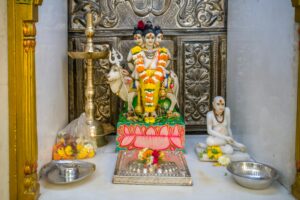Himanta Sarma’s Big Question: Should “Socialism” and “Secularism” Stay in Our Constitution?
Let’s be honest—when Assam CM Himanta Biswa Sarma talks, people listen. And this time, he’s stirred up something big by questioning why words like “Socialism” and “Secularism” are even in our Constitution. Was it a necessary update back in 1976, or just political games during the Emergency? Honestly, I’m still figuring out where I stand, but here’s the thing—it’s messy, it’s complicated, and it matters way more than we realize.
1. Who Exactly is Himanta Biswa Sarma?
If you’ve followed Northeast politics, you know Sarma’s that guy who doesn’t mince words. Started with Congress, switched to BJP in 2015, and now? He’s basically the BJP’s go-to strategist for the region. Love him or hate him, when he talks about citizenship or federalism—or like now, the Constitution—it gets attention. And yeah, this latest rant fits right into BJP’s favorite theme: “Congress messed things up.”
2. That 1976 Amendment Everyone’s Arguing About
What even happened in 1976?
Okay, history crash course: During the Emergency, Indira Gandhi‘s government pushed through the 42nd Amendment. People call it the “mini-Constitution” because it changed so much—added those hot-button words to the Preamble, gave more power to the Centre, tweaked fundamental rights. Big deal stuff.
But why add those specific words?
Here’s where it gets spicy. Supporters say it just made official what India already was. Critics like Sarma? They call it a power grab. And let’s be real—doing it during the Emergency, when everyone’s rights were suspended? Doesn’t exactly smell like democracy.
3. What Sarma Actually Said (And Why It Lit a Fire)
His exact words:
He claimed the 42nd Amendment “completely altered” the Constitution, making it sound like some ideological hijacking rather than natural progress. Classic Sarma move—framing it as part of Congress’s “top-down socialism” legacy.
How people reacted:
Opposition went nuts, yelling about attacking constitutional values. BJP folks? They’re loving this chance to reopen old debates. Legal experts? Split down the middle—some say those ideas were always there implicitly, others say nope, this was forced.
4. The “Socialism” Debate: Useful or Outdated?
Here’s something interesting—Ambedkar and the original framers deliberately avoided labeling India as socialist. They wanted flexibility. But post-1976? More state control, nationalizations, the whole shebang. Then 1991 happened, and suddenly “socialism” started feeling… awkward. Now? Some say it’s holding us back, others think it’s the only thing stopping corporate free-for-all. Me? I think we’re trying to fit a 1970s idea into a 2020s world—it’s like forcing your grandpa’s rotary phone to run TikTok.
5. Secularism: What We Say vs. What We Do
India’s version of secularism isn’t the Western “church-state separation” model. Ours is more like “equal respect for all religions”—at least on paper. But in practice? Haj subsidies (now gone), government managing temples, selective outrage—you know the drill. Sarma’s comments hit right at this uncomfortable gap between theory and reality.
6. The Million-Dollar Question: Remove These Words or Not?
Team Remove:
Their argument? These terms are vague, politicized, and mess with the Constitution’s original vision of pluralistic federalism.
Team Keep:
They’re warning that removal could open floodgates to majoritarianism. And let’s face it—touching the Preamble is like poking a beehive with a short stick.
7. Can They Even Do It? Legal Realities
Thanks to the Supreme Court’s “basic structure” doctrine, there’s only so much you can change in the Constitution. The Preamble’s been modified before (hello, 1976), but reversing it now? Legal nightmare waiting to happen. The 44th Amendment rolled back some Emergency changes, so technically possible—but expect fireworks.
8. Wrapping This Up
Here’s how I see it: Sarma’s put his finger on a constitutional identity crisis. Are “Socialism” and “Secularism” core principles or political baggage? Depends who you ask. But with elections around the corner, this isn’t just academic—it’s about who gets to define what India stands for. And that? That’s always a fight.
FAQs (Because You Know You Were Wondering)
Why were these words added in the first place?
42nd Amendment, 1976, Emergency period. Officially to “clarify” India’s ethos, but the timing makes everyone side-eye the motives.
Can we legally remove them now?
Yeah, but good luck getting everyone to agree. Plus courts might block it under “basic structure.”
Was India secular before 1976?
Kinda? Articles 25-28 guaranteed religious equality, but the actual word “Secular” wasn’t there till ’76.
Why does Sarma’s statement matter now?
Two words: election season. BJP loves painting Congress as constitutional vandals, and this plays right into that narrative.
Source: News18 Hindi – Nation










